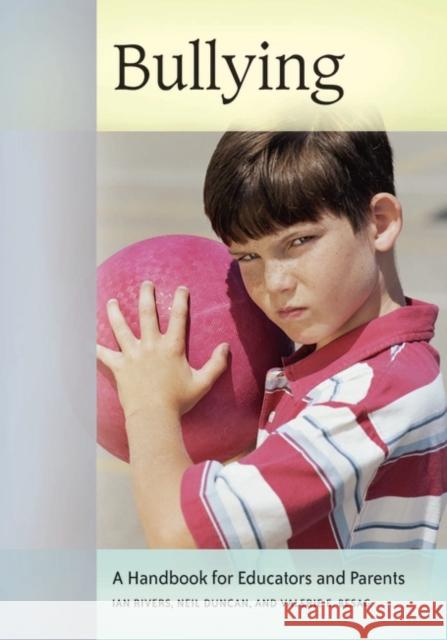Bullying: A Handbook for Educators and Parents » książka
Bullying: A Handbook for Educators and Parents
ISBN-13: 9780313338502 / Angielski / Twarda / 2007 / 224 str.
Bullying: A Handbook for Educators and Parents
ISBN-13: 9780313338502 / Angielski / Twarda / 2007 / 224 str.
(netto: 244,00 VAT: 5%)
Najniższa cena z 30 dni: 229,16
ok. 30 dni roboczych.
Darmowa dostawa!
Addressing the issue from three perspectives: the student, the teacher, and also the parent or family member, this work provides background information, advice and resources about the causes and nature of school bullying along with strategies to address the behavior successfully. It utilizes both qualitative and quantitative evidence illustrating the impact bullying has upon the lives of families, students, and teachers. It provides case examples of the experiences of individual students, teachers, and parents. It concludes with a summary of key points and considerations in the development of interventions that tackle this varied form of behavior in school.
"Bullying: A Handbook for Educators and Parents" offers a comprehensive exploration of the bullying within public schools, drawing upon research conducted in the United States, United Kingdom, Scandinavia, and Canada. It offers insights into the immediate and long-term impact bullying can have upon the lives of students, their families, and teachers. It offers parents useful tips for working proactively with school administrators to resolve bullying issues, and it provides teachers with materials that facilitate a better understanding of the social dynamics of the classroom, hallways, and playground. In addition, the handbook offers administrators a quick, no-nonsense guide to recent state and federal statutes, directives, and legislation relating to bullying and antisocial behavior in grades K-12.
The book is divided into four sections providing a review of research on bullying behavior and an understanding of the dynamics of the classroom through the media of sexual bullying, homophobic bullying, and the challenges faced by parents of students who have special needs. Guidance is offered on the immediate and long-term effects of bullying and ways in which parents can engage proactively with schools to ensure that their child is supported in finding a way out. Finally, the authors ask key questions that parents and educators should consider when working to stop bullying in schools.











